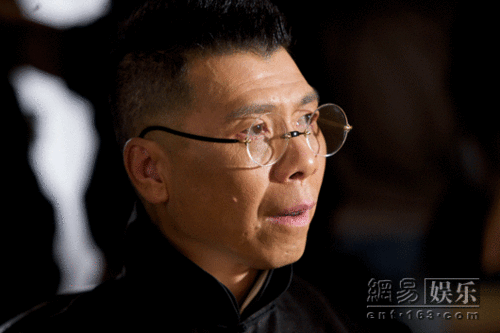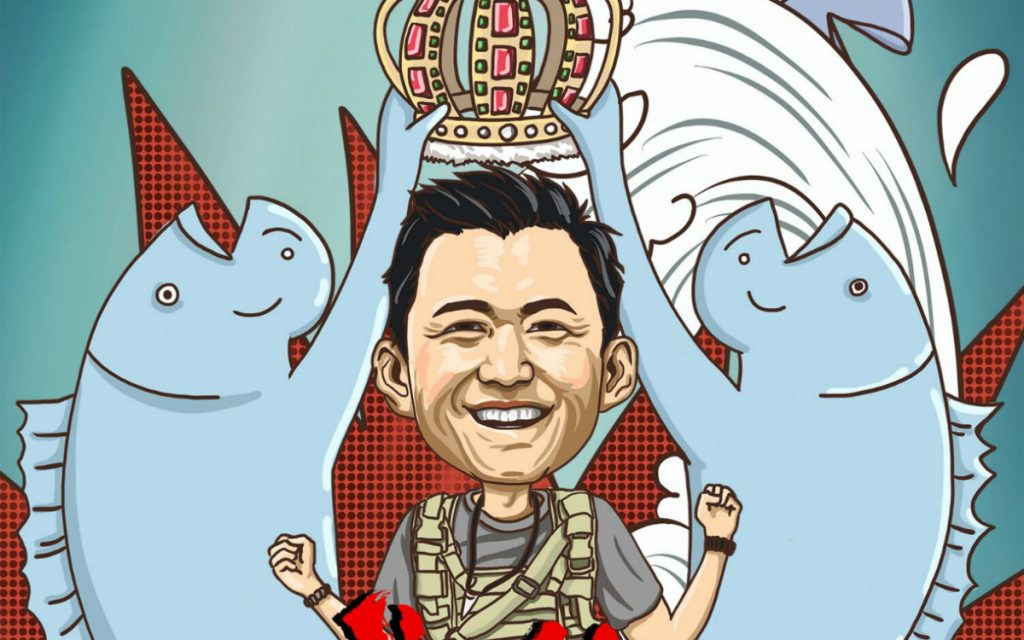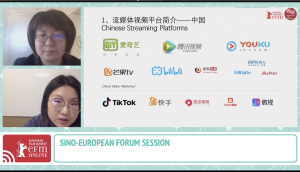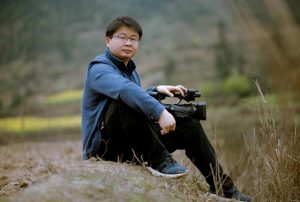In the midst of this year’s strong revival of China box office and the rapid shifting of the entertainment landscape both in China and globally, the Asia Society Southern California Center is presenting the 8th U.S.-China Film Summit on November 1st at the Skirball Cultural Center in Los Angeles. Thought leaders, top executives, and talent from both sides will get together to exchange ideas and offer sharp insights into the world’s second largest film market as well as its relationship with Hollywood.
Featuring a strong lineup of honorees and speakers, such as celebrated Chinese filmmaker Feng Xiaogang, Academy CEO Dawn Hudson, and MPAA CEO Charles Rivkin, this year’s summit will discuss, among other subjects, building film franchises in China and the U.S.; how digital content and distribution are changing the game and forming innovative partnerships.
Last week, in advance of the summit, Janet Yang, film producer and Chair of the U.S.-China Film Summit, spoke to CFI on the planning of this year’s summit and why you should not miss it.
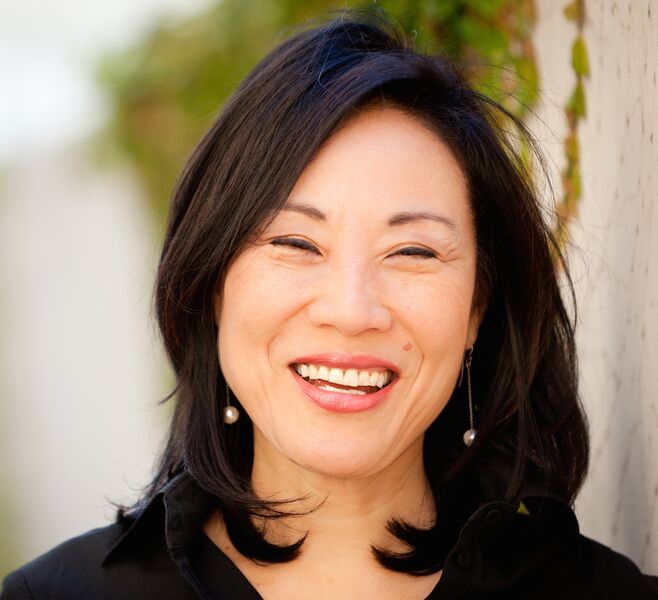
Janet Yang
CFI: You’ve got China’s biggest director, Feng Xiaogang, Hollywood’s top CEOs and three of the most talked-about Chinese movies at this year’s Film Summit. How did you pull them together and is there an overarching theme this year?
JY: We work with UCLA, and they sponsor a Chinese Film Festival every other year. Together, we decided that Feng Xiaogang would be a great person around whom to do a retrospective. We were particularly excited about his movie ‘Youth.’ When I was in China earlier this year, I asked Feng Xiaogang over dinner if he’d be willing to be an honoree for the U.S.-China Film Summit. He quickly agreed so we were off to the races.
I was very honored to be named chair this year, and did the best I could to reach out on a personal level to bring in the best people possible. The same is true with Yu Dong and Dawn Hudson and several of the speakers. I am so genuinely enthusiastic about what we do that I think I can “sell” it.
There are several themes that are emerging. Since things change so quickly in China, it’s usually not a good idea to establish a theme first. But we try to stay close to the cutting edge of whatever is happening. Months ago, we decided that we wanted to screen ‘Wolf Warrior 2.’ I thought it was really important for people to see this movie since it is a huge global phenomenon. Little did we realize at the time that the movie would also become China’s submission for Oscar consideration.
Each of the speakers we have will speak about what’s happening in their sphere of activities and influence, so we will see what ideas emerge. I don’t want to speak for them. But we raise a few interesting topics. For instance, the notion of franchises, both here and in China. Also, we wanted to touch on the digital world. We wanted to have the bigger players speak, but also to balance those out with other unique voices. One of the things that is very close to my heart is in nurturing talent. We can’t just focus on the very established filmmakers. Feng Xiaogang certainly doesn’t need us to help with his career, but we enjoy spotlighting a director like Zhang Yang, who has made so many wonderful films, and whose recent movie (‘Paths of the Soul’) has garnered quite a bit of attention.
As we are studying the Chinese market, it seems that there is increasingly room for non-mainstream movies. The big change that I’ve seen over the past few years is that the mindset of a lot of Chinese investors has changed. In 2013, 2014, and 2015, when the market was going crazy, everyone was looking for the next blockbuster. But what I see this year is that several are looking for quality films, perhaps for Oscar consideration, or just respect abroad. They also invest in movies that are not necessarily Chinese themed, but just very respectable.
CFI: The Film Summit has speakers connected to ‘The Fast and the Furious,’ ‘xXx’ and ‘Wolf Warrior,’ the biggest film franchises in Hollywood and China. What does the phenomenon of ‘Wolf Warrior 2’ herald for China’s film industry and its ability to create franchises in the Hollywood mold? And do you see Hollywood participating in future Chinese franchises?
JY: Clearly, some filmmakers from China are absorbing a lot of the tricks of the trade about how to build a franchise, and I think they are doing a remarkable job. I happened to go to a private screening of ‘Wolf Warrior 2.’ I went in with no expectations. I just wanted to learn. It totally made sense to me that this movie did as well as it did. The hero was an appealing rogue, and that it had an atypical setting. I’d never seen a Chinese movie set in Africa. The story also had very “接地气“ (down to earth/relatable) moments. It was very bold. It didn’t stint. They just went for it, and I think the audiences just responded to that.
CFI: What do you expect to learn by giving ‘Wolf Warrior 2’ and its stars a platform, given that several critics consider it propaganda? Can films like this expand China’s soft power?
JY: The world has been dominated by Hollywood movies for 100 years, and Hollywood has developed some very strong skills in terms of story structure, production values, and post-production, etc. But we are not robots, and everybody who is involved in the making of a movie — every writer, every director, every producer — inevitably brings with him or her a point of view. The movies we associate with blockbusters generally and inevitably have a very western point of view.
I think it’s very jarring for Westerners to see a movie that has a lot of the same qualities of a blockbuster franchise but with a completely different point of view. Personally, I think it is wonderful to see other perspectives on screen. I am not just saying for China, but for many countries around the world, filmmakers can make what’s appealing for their own audience, and tell stories from their own perspective. It is very one-sided to say, “oh, this is such a propagandistic movie.” Many American movies can also reek of so-called “propaganda.” It’s just that people are not used to seeing a Chinese hero in this genre. China has shown that it can create its own franchises.
CFI: Recently, the Chinese government tightened control over overseas investments in a few areas including entertainment. Do you think this will greatly discourage Hollywood’s engagement with China, or do you think companies from both sides will explore alternative ways to continue the engagement? Do we have any panels touch upon this topic?
JY: From an economic standpoint, the appeal of working with China has been at least two-fold. But I consider it to be three-fold. One reason of course is the capital from China. The second, equally important reason is the market in China. All the studios are setting up shop there. They don’t necessarily need the financing, but they want a piece of the market. For some producers like myself, the third and also the most exciting thing is the opportunity to depict different kinds of stories. There are great, fresh Chinese stories that have never been seen on the big screen. I am also eager to discover Chinese talent — directors and writers and actors. From day one of my career, this has been one of my primary motivations. That is, through the medium of film, to create more humanized portrayals of Chinese, and by extension, all those who are underrepresented.
When I lived in China after college, I was able to see Chinese playing a wide array of characters. I didn’t realize how deprived I was for these images and it opened up a whole world for me. We just have to find the right stories and express them in a skillful way, and the results will have a big impact on so many areas — socially, politically, in every way.
CFI: It seems that China’s tech and Internet companies are increasingly blurring boundaries between sectors, and they’ve all tapped into the entertainment business. Do we have representatives from Chinese tech/internet companies to speak at this year’s summit? What topics will they address?
JY: We have a woman in charge of international content from Youku Tudou, and we have representatives from two amazing VR companies. We had also invited someone from Amazon, but they are going through some turmoil right now. We also have someone who once worked at BuzzFeed, and is now in charge of digital at ICM. I don’t know what specifically the panelists are going to say.
CFI: The US-China Film Summit not only provides a platform for industry leaders to share insights with a broad audience, but also facilitates conversations between the leaders from both sides. As far as I know, the summit once facilitated the conversation between MPAA and China Film Group regarding the auditing of China’s box office, which led to the agreement on the auditing. Now that the U.S. and China are in the process of renegotiating a film quota, do you think this year’s summit will have an influence on this negotiation?
JY: Again, I can’t control what’s being said, and that’s the best thing about our summit. People feel free to speak very openly. We aren’t beholden to anybody, although we have the support (from all these parties). Miao Xiaotian (President, China Film Co-production Corporation) is obviously speaking, as he has in the past several years, and members from the Chinese consulate are our guests as well. But they do not influence the content. We want this to be not a sales pitch for any one company, but a useful, productive, and enlightening discussion of all the experiences that people have had. I don’t know if someone is going to choose to make an announcement, but we do offer the platform for that to happen.
CFI: Did you get involved in the planning of this annual summit since its first edition? What did the organizers hope to achieve when they planned the first summit eight years ago? Have the organizers’ objectives evolved over the years?
JY: I’ve been involved from the beginning, so I am very familiar with the Summit. This is the first year in a while that we have had a single chair. I don’t think the overall objective has changed, but the environment has changed. In the early years, there was a lot of talk but not much action. People were talking about what they wanted to do, but it was hard to see the actual results. This year, we have people who can speak about their specific experiences. Rob Cohen is going to speak about ‘Fast and Furious.’ Five years ago, you couldn’t have a whole panel with studio executives talking about all the things they are doing in China, because they were just getting starting. They were actually very reluctant to speak. There wasn’t yet much to say. The nature of the conversation has changed because the nature of the business has changed.
CFI: How has the summit audience evolved in its eight years and what does that say about the industry on both sides of the Pacific?
JY: What’s interesting is that the audience tends to be about 50% Chinese and 50% Westerners. With our speakers and honorees, we also try to strike the same balance. We want the bigger players, but also some surprises. We always try to find the right mix and I think we have a very good mix this year.
CFI: Will the summit address the changes in film distribution and the rules that govern it, especially online?
JY: What we all know is that there is stricter censorship prevailing online. There was a time where they (China’s media regulators) didn’t control it, because the space grew so suddenly. There have been times when it seemed the approval of movies was more difficult, or approval of television content was more difficult, and now perhaps the focus has been on online content.
The whole landscape is shifting so radically all over the world. Netflix is obviously a huge player now, if not the biggest player here, with Amazon and Hulu also very influential. Similarly In China, Tencent, iQiyi, and Youku Tudou are giant platforms. We as consumers have unlimited content available all the time to the point where millennials simply don’t ever need to “wait” for anything.
I don’t have a crystal ball to know the exact interplay of the traditional and new media companies on the new landscape. I think a big question in China is whether the box office is ever going to grow at the pace it did in 2013-2015. And then, how many more films like ‘Wolf Warrior 2’ will we see, which came when there was a complete flattening of the box office? It’s fun to speculate but again, there are always so many surprises, I defy anyone to claim they know the answer!
CFI: You’re also discussing independent films. What are the main obstacles that prevent Chinese films from breakout?
JY: There are definitely cultural obstacles. But what I am hoping to see is that many more western filmmakers will want to spend time in China and really get a feel for the place.
There are already many Chinese students and emerging filmmakers in the West and this is very exciting to me. Some graduate from the best film schools and I believe they are a huge resource and pool of talent. They are at heart Chinese, but understand the global market. You’ve also got other Asian filmmakers from Hong Kong, Japan, Korea, and Taiwan. The boundaries are beautifully breaking down. There will be people who are able to find that sweet spot, who can do something authentically Chinese and also understand the sensibilities of a more global audience. That’s the place I’d like to be.
CFI: For first-time attendees, what can they expect to experience at the summit?
JY: Often people are surprised by how much activity there is between China and the US. So many companies with reps on both sides, and so much travel back and forth! It’s dizzying. It’s just that the results of all these conversation are not yet obvious to the public eye.
There are obstacles of course. I am not a total Pollyanna! But so many good minds – of lawyers, writers, producers, financiers, and agents – are being deployed in this space. What I’m certain of is that it will keep growing. It’s not getting less. For some, if they don’t see immediate rewards, they might bow out. But for many of us, the commitment is deep.
I do think the media tends to paint the issues, the problems, and the rewards in very broad strokes, making it appear as if the pendulum swings wildly from one end to the other. A more nuanced look shows that there is a great deal of measured professional activity.
CFI: Anything else about the summit you’d like to tell CFI audience?
JY: I want to invite newcomers in particular to join us. We have two major events — the all-day long Summit, and then an amazing gala dinner at night with incredible honorees, including the CEO of the Academy of Motion Pictures and uber director Feng Xiaogang. Come to either or both!!



